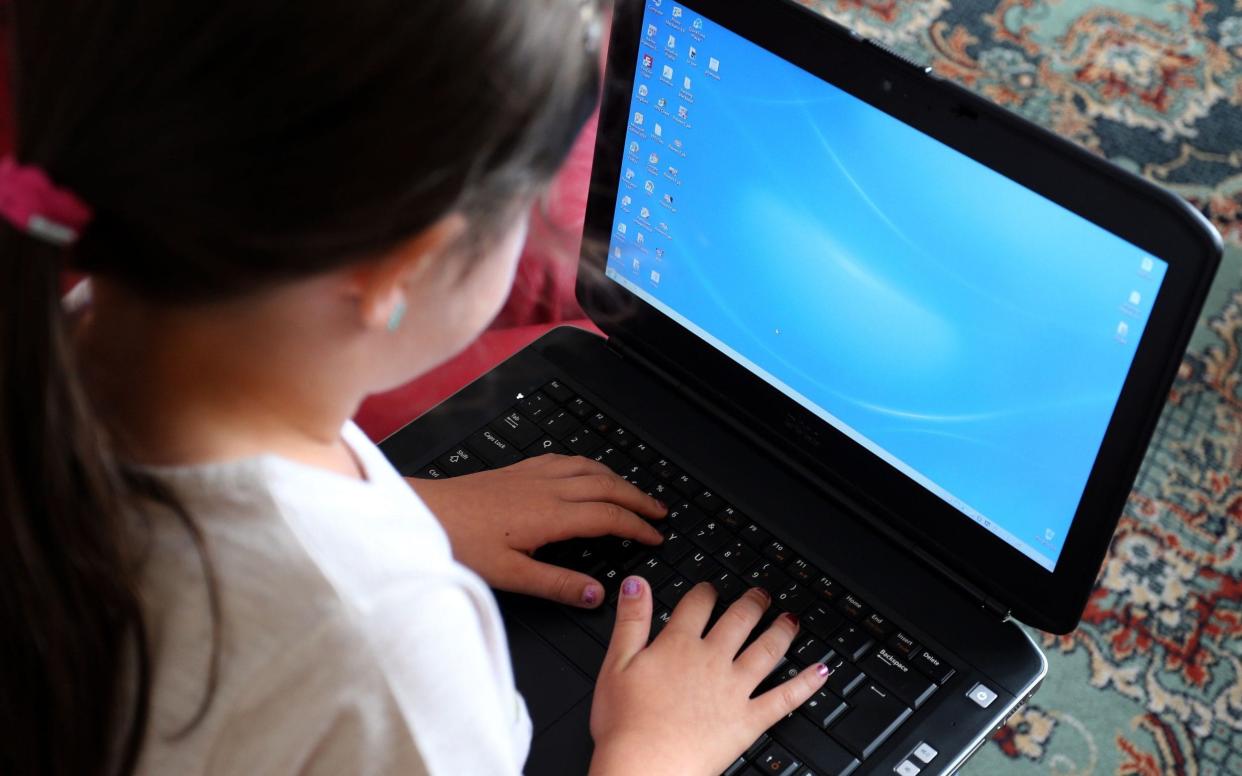Wearing glasses to knock out blue light before bed can stop sleep disruption

Wearing glasses to knock out blue light before bed can stop phones, computers and tablets from disrupting sleep, a new study suggests.
Blue light from screens can be hugely disruptive to the body clock because it mimics the wavelength of light in the morning, which suppresses the production of the sleep hormone melatonin.
Previous research has shown that teenagers who use a computer in the hour before bedtime are three times more likely to get less than five hours sleep, which can be hugely disruptive to mood and schoolwork.
As well as immediate symptoms of tiredness and poor concentration lack of sleep can also increase the risk of more serious long-term health issues such as obesity, diabetes and heart disease.
But a new study by researchers in Amsterdam found that wearing glasses which filter out the blue light has virtually the same impact on sleep as turning off devices entirely.
Teenagers who used screens before bed needed an extra 30 minutes to get to sleep compared to those who did not, yet the blue light filters helped offset the problem within just a week.
Dr Dirk Jan Stenvers from the department of Endocrinology and Metabolism of the Amsterdam University Medical Centre said: “Adolescents increasingly spend more time on devices with screens and sleep complaints are frequent in this age group.
“Here we show very simply that these sleep complaints can be easily reversed by minimising evening screen use or exposure to blue light.
“Based on our data, it is likely that adolescent sleep complaints and delayed sleep onset are at least partly mediated by blue light from screens.”

For the study the team conducted a randomised controlled trial to assess the effects of blocking blue light with glasses and no screen time during the evening on the sleep pattern of 25 frequent users.
Both blocking blue light with glasses and screen abstinence resulted in sleep onset and wake up times occurring 20 minutes earlier, and a reduction in reported symptoms of sleep loss in participants, after just one week.
The study also showed that filtering out the blue light reduced symptoms of fatigue, lack of concentration and bad mood, after just one week.
Glasses and screens which filter blue light are not readily available online and at some opticians, but this is the first research to show they can actually benefit sleep patterns for teenagers.
Dr Stenvers and his colleagues are now investigating whether the relationship between reduced screen time and improved sleep has longer lasting effects, and whether the same effects can be detected in adults.
Filters could also help counteract other problems caused by too much blue light. Last year a study by Toledo University in Ohio found that blue light from digital devices triggers the production of a toxic chemical that kills light-sensitive cells in our eyes.
The resulting damage can speed up macular degeneration – a condition that affects the middle part of vision. Around one in seven people over 50 have some signs of the disease and there is no known cure.
Dr Stenvers added: “Sleep disturbances start with minor symptoms of tiredness and poor concentration but in the long-term we know that sleep loss is associated with increased risk of obesity, diabetes and heart disease.
“If we can introduce simple measures now to tackle this issue, we can avoid greater health problems in years to come.”
The research was presented at the annual meeting of the European Society on Endocrinology in Lyon.


